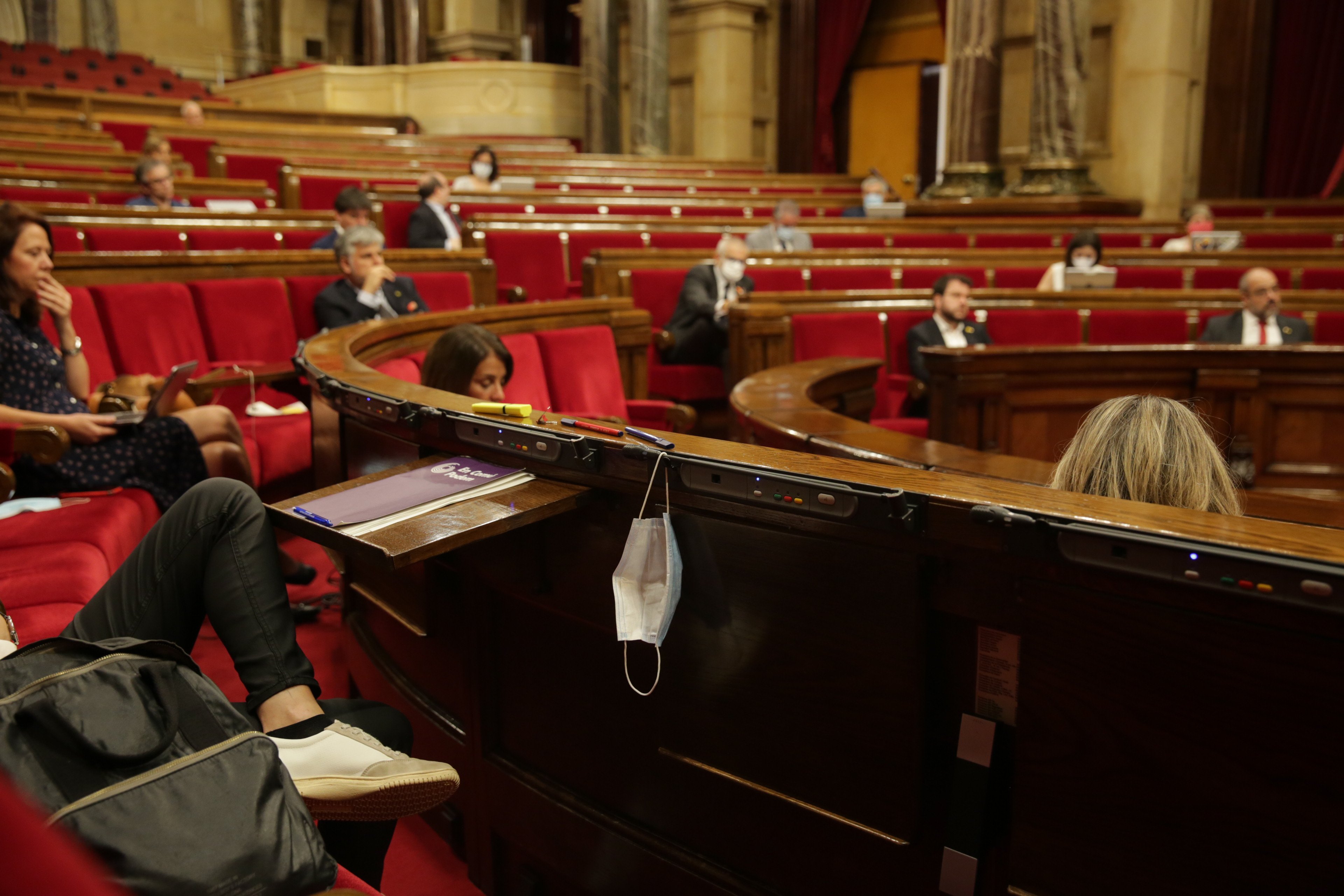After a homophobic attack on two young people in Barcelona over the weekend, the Catalan Parliament today planned to make an institution declaration of support for the dignity, liberties and rights of LGTBI+ people. However, far-right Vox withdrew their support. As the Parliament's institutional statements require a unanimous vote in favour, the legislative body was only able to make a less-powerful majority statement by the Parties Committee.
The statement had been proposed by the speaker, Laura Borràs, at the beginning of the session. Vox demanded that two paragraphs of the text be cut. After the other groups refused to eliminate them, Vox refused to support the motion and the institutional declaration did not succeed.
Spokesperson for the extremist party Joan Garriga told the press later that Vox had already warned that "there would be no institutional statements if Vox continued be cordoned off" - a reference to the parliamentary cooperation by most Catalan parties to prevent the far right party from gaining an institutional loudspeaker for its views by taking on parliamentary roles. Said Garriga: "We at Vox don't like ideological colanders. They can't give us a role at the last minute," he said.
The Vox spokesperson complained that the text had been raised at the last minute and, despite everything, they had been willing to agree to it by assuming "a radical and unequivocal condemnation" of homophobic aggression, but removing references to Agenda 2030 and what they described as "policies that can be disputed" and "indoctrination" from the governments.
Distorting reality
The other parties in the Catalan chamber rejected Vox's request. In fact, this debate was the focus of much of the session. "The far right continues to distort reality, falsifying data and we will not be complicit in its strategy," argued Socialist spokesman Raül Moreno from the press room.
A similar situation had occurred on April 13th, when the position of the far-right group prevented an institutional statement following the 50th anniversary of the First International Romani Congress.
In fact, the agreement between the PSC, ERC, Junts, CUP and Comuns to isolate the far right from parliamentary activity included the possibility that institutional declarations would no longer require unanimity to prosper and that a weighted majority would be sufficient.
Fifteen parliamentary committees
This is not the only point where the role of Vox in the chamber has come back into debate. The Parties Committee also today approved the creation of 15 committees, which reproduce the schema of the 14 ministries in the Catalan government, with the amendment that Agriculture and Climate Action, which form part of the same ministry, will have separate committees.
Once the plenary session of Parliament approves the creation of the committees tomorrow, the groups will have to debate the distribution of those who will chair and hold positions on the bodies, which will again raise the debate on the place of Vox.
The three pro-independence groups in the chamber along with En Comú Podem managed to prevent the far-right party from gaining one of the places on the Spanish Senate which the Catalan Parliament appoints. They did so by justifying the proportionality of the decision under the so-called Imperiali formula instead of the D'Honts Law used to calculate electoral seats in Catalonia. Vox, which has 11 deputies in the 135 seat chamber and is the fourth largest group in Parliament, did not hide its annoyance with this deal and announced an appeal to the Constitutional Court.
In the main image, the chamber of the Catalan Parliament / Sergi Alcázar

